McKeown Medical
167 Bath Street, Glasgow, G2 4SQ
Radiofrequency ablation (RFA) and endovenous laser ablation (EVLA) are two minimally invasive treatments used to effectively treat varicose veins, but what’s the difference?
Date posted — 29.09.24
Radiofrequency ablation (RFA) and endovenous laser ablation (EVLA) are two minimally invasive treatments used to effectively treat varicose veins. Both procedures aim to close off problematic veins, preventing them from causing further symptoms and leading to their eventual absorption by the body.
RFA uses radiofrequency energy to generate heat within the vein. A thin catheter is inserted into the vein through a small incision, and once inside, the radiofrequency energy is delivered through the catheter, causing the vein walls to heat up, collapse, and seal shut. This treatment is performed under local anaesthetic, and most patients experience little discomfort, with a quick recovery time and minimal scarring.
EVLA works on a similar principle but uses laser energy instead of radiofrequency to achieve the same result. During EVLA, a laser fibre is guided into the affected vein, and when activated, the laser’s heat damages the vein walls, causing them to collapse and close off.
Like RFA, EVLA is performed under local anaesthetic and is considered highly effective for treating varicose veins. Both RFA and EVLA offer excellent outcomes with low risk of complications, making them preferred options over more invasive surgical treatments. These procedures allow patients to resume normal activities relatively quickly, with significant improvement in both the appearance of the legs and the symptoms associated with varicose veins.
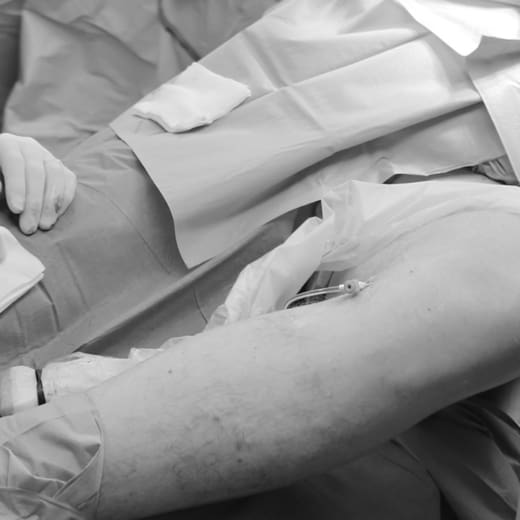
Although RFA and EVLA are very similar in terms of success rates at shutting down larger varicose veins, several studies have suggested that RFA may be associated with lower complication rates, so RFA is our preferred traditional endovenous method.
An even newer endovenous technique known as Venaseal™, however, is an exciting addition to our practice. The success rate of Venaseal™ is similar to both RFA and EVLA. However, it uses glue rather than heat to close the veins and is associated with even less discomfort.
The benefits of RFA for treating varicose veins are numerous, making it a popular choice for both patients and doctors. RFA is minimally invasive, requiring only a small incision to insert a catheter into the affected vein. This results in less pain, minimal scarring, and a quicker recovery time compared to traditional surgical methods.
The procedure is typically performed under local anaesthetic, reducing the risks associated with general anaesthetic. RFA is highly effective, with a success rate of over 90%, and provides long-term relief from the symptoms of varicose veins, such as pain, swelling, and leg fatigue. Additionally, patients can usually return to their normal activities within a day or two, making it a convenient option for those looking for an effective and efficient treatment.
Dr Alex Vesey is our expert consultant vascular surgeon who heads up our varicose vein team. Listen to him explain the Radiofrequency Ablation (RFA) treatment.
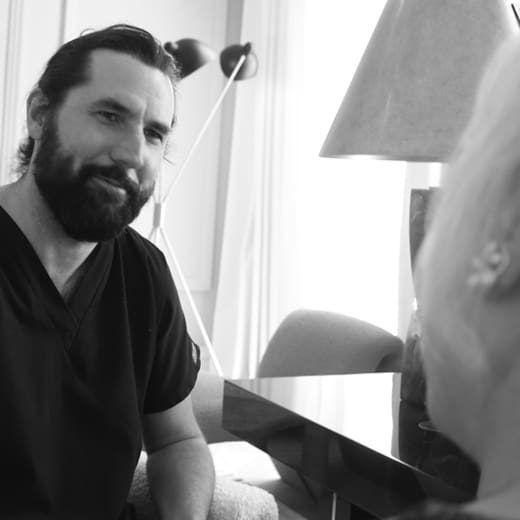
RFA is considered better than EVLA for treating varicose veins in our practice because it’s generally a more comfortable experience and has a lower risk of complications.
RFA typically causes less post-procedural pain and bruising because it uses radiofrequency energy, which generates a gentler heat compared to the intense heat from laser energy used in EVLA. This can result in a smoother recovery with less discomfort for patients.
Additionally, RFA has a slightly lower risk of nerve damage, particularly in areas where veins are close to nerves, such as the lower leg. The procedure’s outcomes are highly successful and comparable to EVLA but with a more favourable side effect profile, making RFA a preferred option for many patients and clinicians.
Recently, we have introduced the Venaseal™ procedure. Venaseal™ is even less invasive because it avoids the use of heat altogether, which causes even less discomfort whilst still achieving excellent closure rates and long-term outcomes for patients.
If you’d like to find out if RFA is the right treatment for you, the first step is to fill out our online consultation form. From there, our team will be able to arrange an initial consultation and ultrasound scan, and we can work together to create a treatment plan that is tailored to your needs.
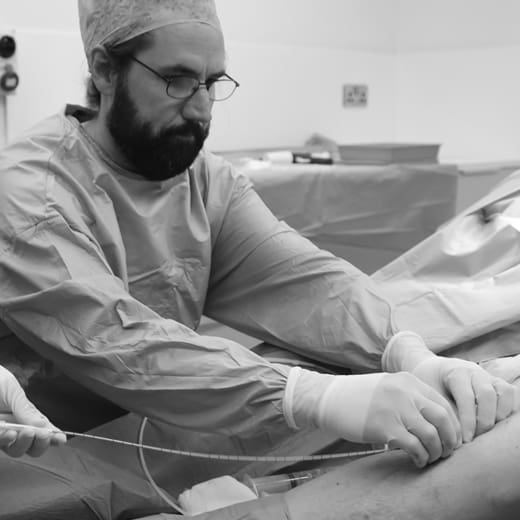
If you're struggling with the discomfort, swelling, or unsightly appearance of varicose veins, Radiofrequency Ablation (RFA) could be the solution...
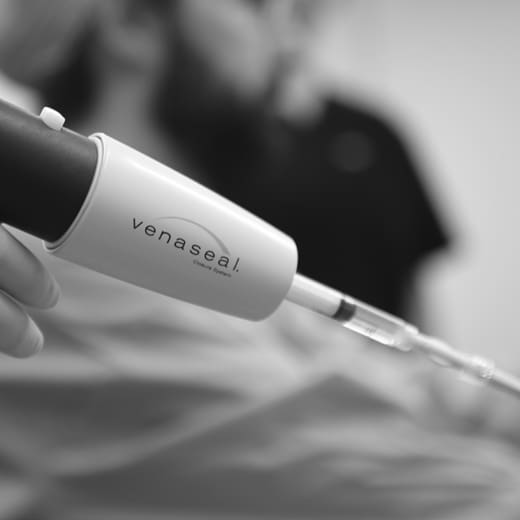
When it comes to treating varicose veins, VenaSeal™ has emerged as a revolutionary option that offers a minimally invasive and...
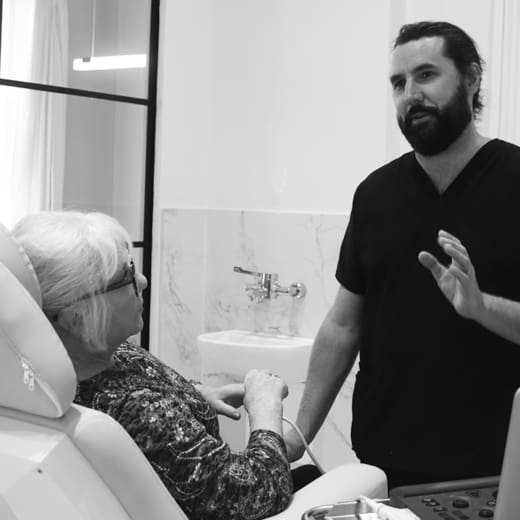
Varicose veins are enlarged, twisted veins that often appear just under the skin, primarily in the legs and feet.
1 / 3
2 / 3
3 / 3

If you're struggling with the discomfort, swelling, or unsightly appearance of varicose veins, Radiofrequency Ablation (RFA) could be the solution...

When it comes to treating varicose veins, VenaSeal™ has emerged as a revolutionary option that offers a minimally invasive and...

Varicose veins are enlarged, twisted veins that often appear just under the skin, primarily in the legs and feet.
One of Dr Kavita’s breast reduction patients sent this gorgeous bouquet of flowers after her follow up - simply because she felt so grateful for her result and the care our team provided.
Moments like this remind us why we do what we do and why ‘how’ we do it is so important. Surgery has traditionally been a very male-dominated world, but Kavita brings something different - exceptional technical skill combined with empathy, warmth and a genuine understanding of women’s bodies and aesthetics.
There can be a lot of pressure on women in surgery to abandon their femininity to fit in. Kavita hasn’t done that. She’s succeeded by being completely herself.
And that’s exactly why our patients love her (and why we do too).
We’re very proud to have her as part of the McKeown Medical team.

This patient came to the clinic thinking she needed a facelift to get what she wanted. We do facelifts - lots of them. But for this patient, her biggest issue wasn’t loose skin.
It was skin quality, which is something we see a lot of, so we suggested she fix that first. This is the result. Fully ablative resurfacing isn’t easy, but for the right patient, it can be life-changing.
The patient is delighted with her results. What do you think?

Another gorgeous result for another gorgeous patient by the very talented @bramhallplasticsurgery.
This patient is 2 months post-op and loving life with her new eyelids. As well as looking better, she can see better because the weight of the excess skin has been removed. The patient is delighted.
What do you think?

Last week marked a huge milestone for us at McKeown Medical.
Our first full lists of major surgical procedures - something we’ve been carefully building towards for several years - and I couldn’t be prouder of this team.
Led by Dr Kavita, we treated patients for breast augmentation (using both implants and fat transfer), breast reduction, uplift surgery and intimate female procedures, with every case approached thoughtfully, calmly and with meticulous care.
What meant the most to me wasn’t just the surgery itself - it was the experience our patients had.
Thanks to Dr Rob and his modern anaesthetic techniques, patients were comfortable, clear-headed and walking around within an hour of surgery - no nausea, no vomiting, just smooth recoveries.
Our wonderful nursing team cared for everyone before and after, and Lorraine kept the entire day running like clockwork behind the scenes.
Moments like this remind me why we’ve taken our time to grow these services properly. We could have rushed this process, but we’ve taken our time to get it right. I never wanted to simply add surgery to the clinic - I wanted to rethink how patients experience the surgical process.
We’re only just getting started, and I’m incredibly excited about what this means for the patients across Scotland and beyond who choose to trust us with their care.

As all of our patients know, the neck is the one part of the anatomy we always struggle to treat without surgery.
This patient underwent CoolSculpting to reduce some of the excess fatty tissue under her chin, followed by @sofwave.uk to tighten the skin. This is still early days for her, but we can see she is already well on her way to a great result.
When it comes to the neck, combination treatments are usually the answer to the best results.
What do you think?

We have an exciting new addition to the clinic - Visia skin analysis.
We’ve had a growing focus in the clinic on skin quality and skin health over the years with more and more investment in lasers and devices that improve skin quality as the foundation of what we do in aesthetic medicine.
The Visia is a great tool for helping us to analyse the skin and track progress of treatments over time. As well as doing a thorough analysis of all the components of sun damage and skin health, it also gives us an estimate of our ’true age’, which is a reflection of the condition of our skin compared with average for our age.
This is one of my own analysis images. It got my ’true age’ pretty much spot on with my chronological age, which is perhaps surprising given that I spent most of the 90s lying under a sun bed. What was interesting is that I scored really well on superficial pigment and redness, which is consistent with the fact that I love BBL and have a treatment a few times per year. I scored less well on deeper pigment and texture issues, which I guess is consistent with the fact that I’ve not had a Halo laser for nearly 4 years now. So I guess I will be booking another Halo for myself very soon!!!
We`re offering the Visia skin analysis free as part of our laser consultation process. If you`re interested in laser treatment, come in for a consultation with Dr Sharon and you’ll have your analysis done as part of planning your treatment strategy.
You’ll also be scanned again after your course of treatment so we can track your progress.
What do you think of this new addition to the practice?

I am very humbled to share these incredible reviews from our patients.
We are very fortunate to have a team who LOVE their work and will always go the extra mile to ensure our incredible patients are properly taken care of at every step of their journey with us.
We couldn’t do what we do without our incredible (and growing!) team and I am so proud of every one of them.
We have some very exciting developments on the horizon, so keep watching this space!

Laser eye rejuvenation! Thank you to our lovely patient for allowing us to share her photos, just one week after her laser eyelid rejuvenation.
Crepe skin, loose skin, wrinkles are all common signs of ageing around the eye which do not respond well to surgery. The optimal treatment for these problems is laser resurfacing - which is exactly what this patient had.
We’ve been performing these treatments in the clinic for several years, although I’ve recently modified the technique to achieve incredible results with less downtime.
What do you think?

Here’s another fantastic result from our phenomenally talented plastic surgeon, @bramhallplasticsurgery .
As we age, the eyebrows naturally descend which allows excess skin to fall into the upper eyelids. The two main surgical options to address this are a brow lift, an upper eyelid lift (upper blepharoplasty) or both, but for many patients the most appropriate option is also the simplest: to leave the brows exactly where they are and address the excess skin at the eyelids alone.
Upper blepharoplasty is a straightforward procedure with scars hidden in the natural eyelid crease, making them very hard to see once healed. Brow lifts are usually more involved, often require a general anaesthetic, and tend to create a more noticeable change to the face.
The aim with upper eyelid surgery is subtle improvement - looking fresher and more rested, without it being obvious that you’ve had anything done.
This 42-year-old gentleman had a bilateral upper blepharoplasty under local anaesthetic and is shown here six months after surgery.
What do you think?
